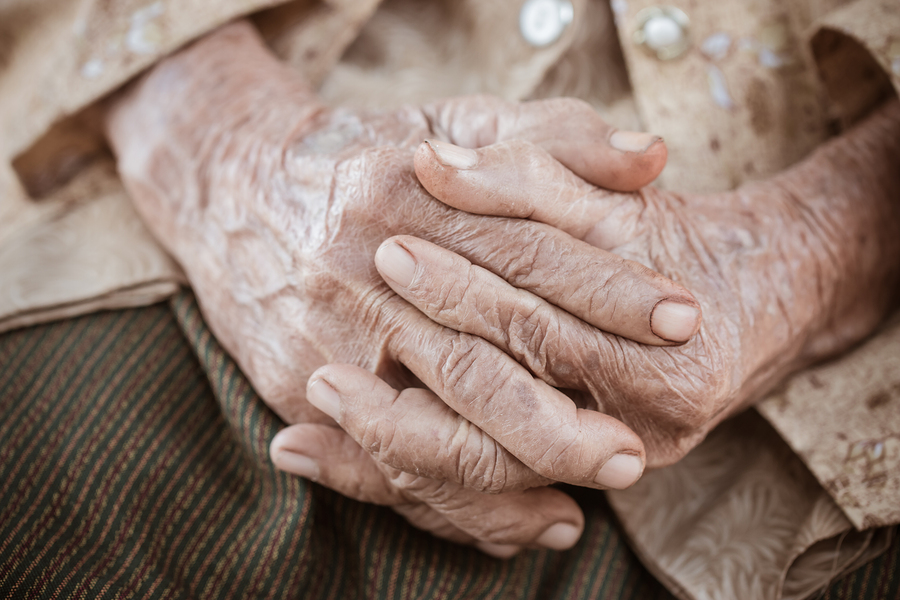 What is the secret to living to the age of 100 and older? Some centenarians tout the benefits of a daily shot of whiskey; some credit healthy eating and exercise while others praise good genes for their long life. But researchers are pointing to the influence of strong social ties and familial supports resulting in low levels of depression--helping centenarians achieve positive overall mental and physical health as they age.
What is the secret to living to the age of 100 and older? Some centenarians tout the benefits of a daily shot of whiskey; some credit healthy eating and exercise while others praise good genes for their long life. But researchers are pointing to the influence of strong social ties and familial supports resulting in low levels of depression--helping centenarians achieve positive overall mental and physical health as they age.
In her article this week for CNN.com, writer Vivien Jones examined whether “a social life [is] the answer to longevity” when she reported on recent research done on a specific area of the southern Italian island of Sardinia. Jones reports many researchers consider this “an extraordinary region in which the proportion of centenarians has been found to be three times greater than in the rest of Sardinia--and mainland Italy”.
While all suggestions to improve longevity—such as diet, exercise and genetics—are important. regardless of where one lives, “research in this Mediterranean region indicates that social interaction may be just as influential,” wrote Jones.
The area of interest focuses on several villages of Sardinia’s central island area, including the village of Tiana. According to Jones’s article, the Sardinian region “was recognized as one with remarkably low mortality rates and high life expectancies”.
More than a decade ago, Dr. Giovanni Pes, a physician and demographer “marked each settlement onto a map, eventually creating a cluster of blue marks [and] . . . labeled the region a blue zone, a term now used to refer to any area with extraordinarily long-living populations”.
In his analysis of the tiny Italian region’s population, Pes believed he would find genetic variants supporting longevity may have occurred there as a result of geographic isolation. Instead, through analysis of historical information and interviews with elderly residents, Pes found that social and psychological factors are just as important.
Jones quoted photographer and writer Luigi Corda, who produced a book of portraits of Sardinia’s resident centenarians. He recognized the important role family plays in a successful long life. "The fact of still feeling important, being the center of attention and head of a family, makes them active and gives them the strength to move ahead, underlying the importance of the family, in addition to genetic aspects, diet and religion,” Corda wrote.
Jones explained that the research of psychologist Maria Chiara Fastame, from the University of Cagliari in southern Sardinia supported Corda’s comments. “By staying embedded in the social life of the village, older people maintain an active and valued role in the community,” Jones wrote.
“If you are involved with many activities, physical or cultural, it means that your mind is more efficient,” said Fastame.
Claudio Cabiddu grew up in the Italian region, wrote Jones, and is studying the psychology of centenarians at the University of Cagliari. “Cabiddu has found that attitudes are very different [here], as older people live more independent lives,” Jones added. “In his village, older people are welcomed home and cared for by their families.”
A 2017 study of the blue-zoned Sardinian region of centenarians found that when compared to “older populations” in other areas, these seniors were much more involved in familial, leisure and social activities. “From a psychological perspective,” reported Fastame, “the social context is fundamental to get old well.”
Psychologist Paul Hitchcott of the University of Caligari was one of the researchers in the 2017 study. Reporting on its results in an article for the U.S. National Library of Medicine, Hitchcott and his colleagues explained that the older people living in this area are “very unusual in that they have very low levels of depressive symptoms”.
Hitchcott emphasized that while the entire population of the island was of lower economic status and inhabitants did not “lead idyllic rural lives”, what they did possess was “a resistance to the normal knocks that older people have later in life." The reason for their overall mental and physical success was due to “their tight-knit relationships”, he added.
Hitchcott’s work recognized that the sample size of Sardinian centenarians was small and limited in geographic area. But it also accepted that a “novel effect” was indeed taking place for those living in the researched area--effects “arising from close, satisfying interpersonal relationships [suggesting] this has a pervasive influence across adult life span”.
In summary, Hitchcott et al said their test observations “build on previous reports that superior mental health among inhabitants of the Sardinian ‘blue zone’ can be traced to the impact of various psychosocial factors”.
Research published in 2012 of an American study by Scientists at Albert Einstein College of Medicine and Ferkauf Graduate School of Psychology of Yeshiva University in New York also found that remaining involved in all aspects of life is an important factor in the mental and physical requirements for longevity.
Janice Wood, in her 2012 article for PsychCentral.com, quoted the study’s co-author, Nir Barzilai, M.D. “When we assessed the personalities of . . . 243 centenarians, we found qualities that clearly reflect a positive attitude toward life,” he said. “They considered laughter an important part of life and had a large social network.”
References
Hitchcott, P.K., Fastame, M.C., Ferrai, J., & Penna, M.P., (August 31, 2017). U.S. National Library of Medicine. Psychological Well-Being in Italian Families: An Exploratory Approach to the Study of Mental Health Across the Adult Life Span in the Blue Zone. https://www.ncbi.nlm.nih.gov/pmc/articles/PMC5590529/
Jones, J., (February 6, 2018). CNN.com. The centenarians dominating one region of Sardinia. https://www.cnn.com/2018/02/06/health/sardinia-centenarian-village-tiana/index.html
Wood, J., (May 27, 2012). PsychCentral.com. Upbeat Personality Boosts Longevity. https://psychcentral.com/news/2012/05/27/upbeat-personality-boosts-longevity/39292.html